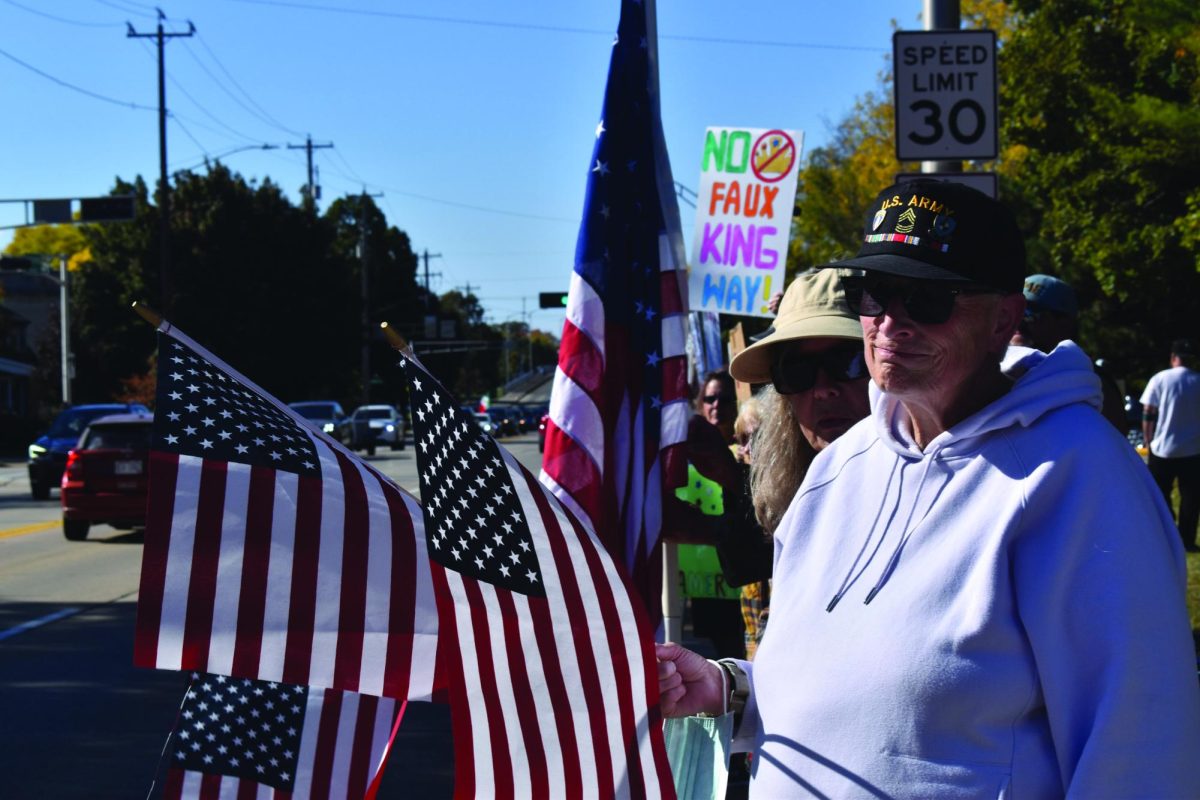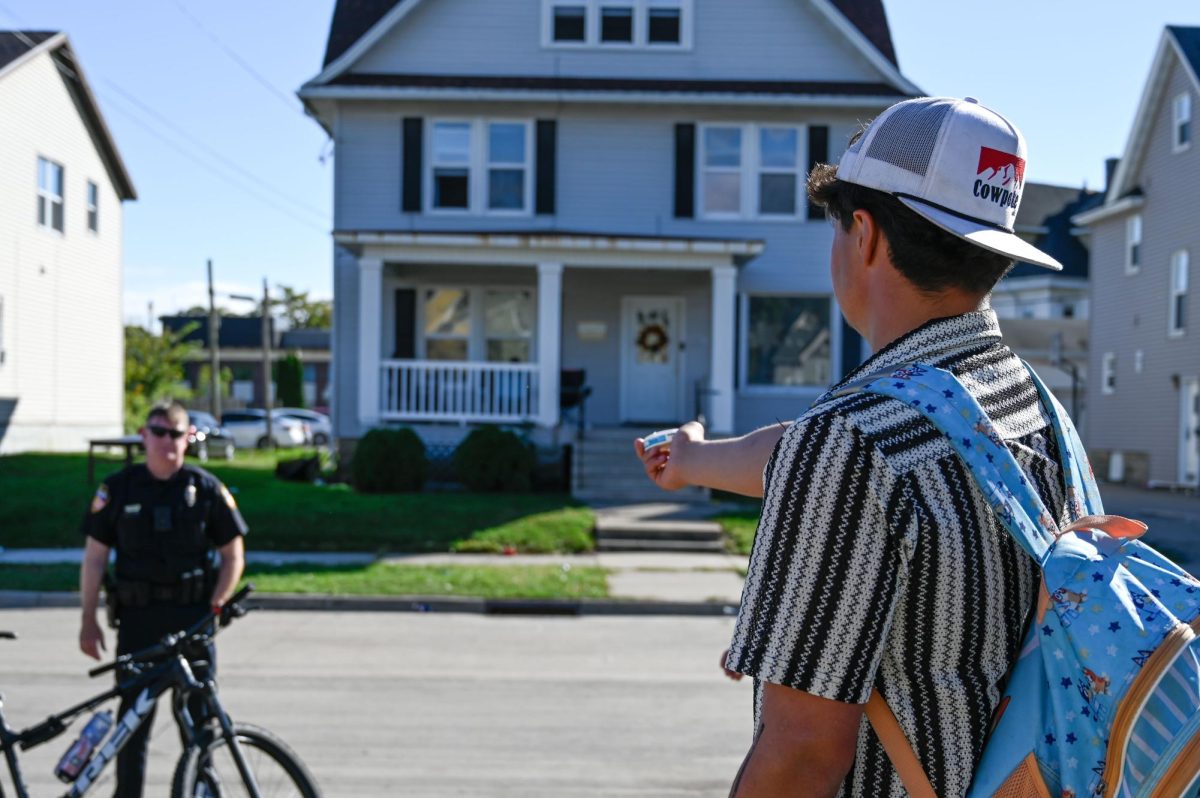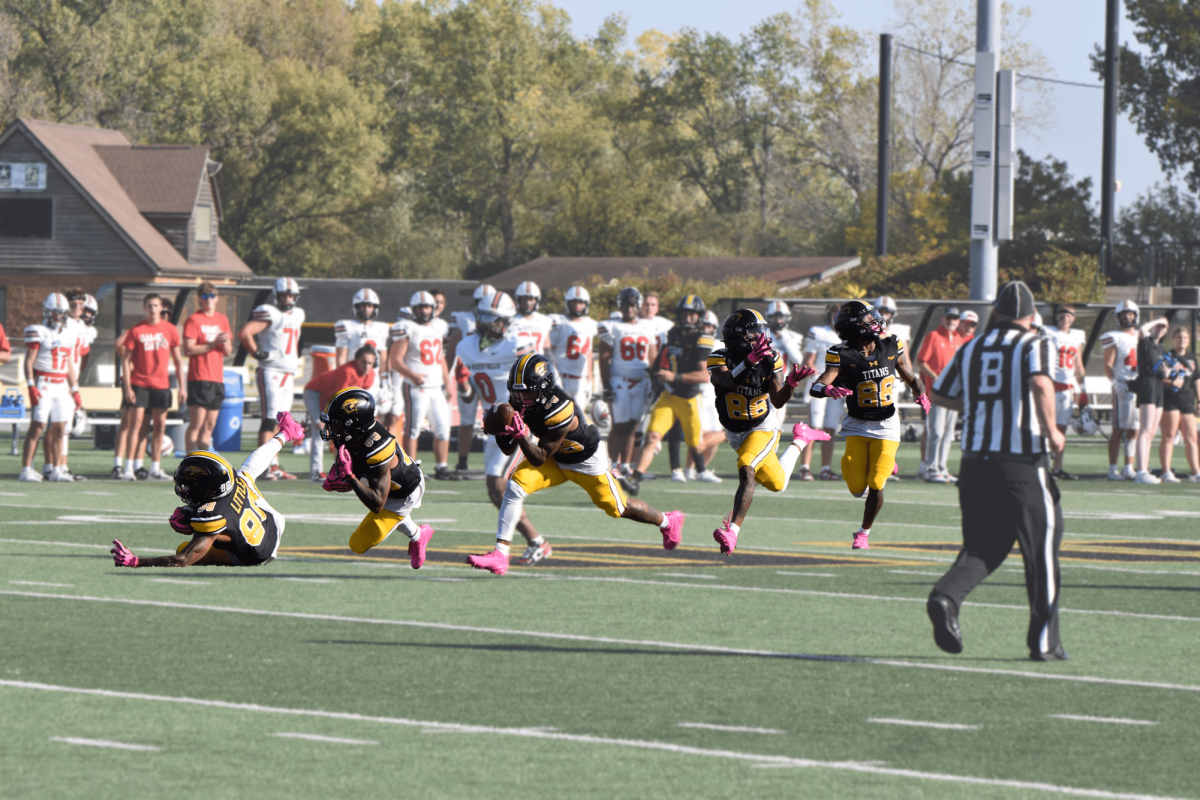Maria Berge and Jared Schadrie were announced as Oshkosh Student Association President and Vice President after the OSA Election Commission hearing about election allegations made about presidential candidates that were both accepted and rejected on Tuesday.
The OSA Election Commission certified the results after the hearing. The results will be official after the report is voted and passed by the OSA Senate.
Brandon Colligan and Bryan Carter received the most popular votes from the campus community, but, after the hearing, the accepted allegations that allowed a certain percentage of the total votes to be taken away, resulting in the election of Berge and Schadrie.
Originally, Colligan and Carter had 294 total votes, while Berge and Schadrie had 188 total votes.
After the hearing, Colligan and Carter had 26 percent of the total vote deducted from their votes which left them with 94 votes, while Berge and Schadrie had 10 percent of the total vote deducted from their votes, leaving them with 111 votes.
The allegations made against the Colligan and Carter campaign were “campaigning outside campaign period” and multiple violations against “university posting policy.”
Colligan said he disagreed with the penalties his campaign suffered because of a lack of evidence, although he said the commission has the authority to make that decision.
“We ultimately won the plurality of the votes by over 100 votes and would have won the election even with penalties if it were not for the change,” Colligan said.
Allegations made against the Berge and Schadrie campaign consisted of two allegations regarding campaigning in the polling place on election day.
Berge said she agreed with the results of the hearings and felt the results were legitimate.
“We feel that the violations were just,” Berge said. “Whether we liked them or not, each slate had a chance to prepare their defenses and present them to the election commission. We fought hard against our allegations but ended up losing our argument, which meant we lost 40 percent of our vote or 10 percent of the total vote.”
All five allegations made against the Colligan and Carter campaign were accepted by the OSA Election Commission, and one of the two allegations made against the Berge and Schadrie campaign was accepted.
Colligan said he felt the calculation of the violations undermined the democracy of the elections.
“The system in original elections was the violation penalty percentage multiplied by the slate’s total vote,” Colligan said. “This year, however, that system was changed, and we were not notified that it would be; this change took the penalty percentage and multiplied it by all votes cast.”
The other two OSA presidential campaigns, Wojciechowski and Lawrence and Obieze and Veith, also had allegations that were accepted. Their votes were deducted as well.
Wojciechowski and Lawrence had actual votes of 144 and after the OSA Election Commission hearings had 29 votes.
Obieze and Veith had actual votes of 139 and after the OSA Election Commission hearings had -22 votes.
OSA Election Commissioner Daniel Dennis said his part in the OSA Election Commission is to make sure OSA Election Bylaws are upheld.
“My job is to interpret and execute OSA Election Bylaw 5.7 that was written by former OSA senators,” Dennis said.
OSA Election Bylaw 5.7 states “each violation of the rules of conduct shall be assigned a certain percentage of the total vote for that office across all candidates, except for 5.8.11. A candidate or slate found in violation of a rule will have that number of votes, as determined by a percentage of the total vote, removed from their vote total.”
Since the OSA Election Commission results have been released, Colligan said he and Carter have appealed the ruling.
“Simply put we believe that a change in how the election commission established for the election and awards or calculates penalties undermines student shared governance rights, which is in Wisconsin state statutes,” Colligan said.
Colligan said he believes the current system in place is not fair and the interpretations of the allegations were weak.
“To summarize, our campaign along with others in the current system had 60 percent of their vote totals slashed due to this change and for one campaign, amounted in having negative votes simply to show how flawed this approach by the commission was,” Colligan said.
Berge said she believes the system in place by the OSA Election Commission is fair due to the fact that the bylaws are public documents.
“All candidates were given the opportunity to ask questions of the election commission if they were unsure of the meaning of particular section of the bylaws well before violations were submitted,” Berge said. “The election commission also gave each of the slates ample time to defend their positions and took lots of time to deliberate.”
Berge said knowing the bylaws is part of the job of being in OSA.
“It is the responsibility of each slate to know the bylaws and adhere to them, and we also failed in that regard according to the election commission,” Berge said. “While this process may be fair, as we stated earlier, it is not perfect. Some of the language in the bylaws is a little unclear, and amendments would be helpful.”
Colligan said there needs to be serious consideration about how the violations were calculated and how they undermined the student-shared governance groups.
“While the commission is within their authority to make violations and rulings how they like, this change ultimately lead to a drastically different outcome than what was decided by students and should have happened under the original violation system,” Colligan said.
[media-credit name=”Courtesy of the Oshkosh Student Association” align=”alignleft” width=”300″]![]() [/media-credit]
[/media-credit]













